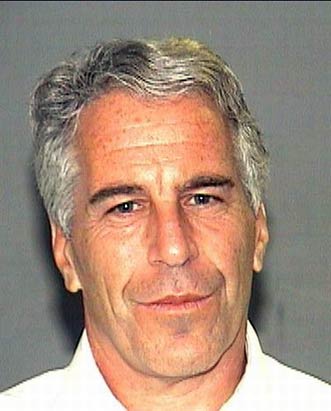
Epstein, arrested over the weekend, was expected to make his first court appearance on the charges in the afternoon in New York City. Prosecutors were likely to argue he is a flight risk and should remain in jail instead of being released on bail to await trial.
Epstein, a 66-year-old hedge fund manager who once hobnobbed with some of the world’s most powerful people, was charged in an indictment unsealed Monday with sex trafficking and conspiracy. The charges carry up to life in prison.
He was accused of paying underage girls hundreds of dollars in cash for massages and then molesting them at his homes in Florida and New York.
Epstein “intentionally sought out minors and knew that many of his victims were in fact under the age of 18,” prosecutors said. He also paid some of his victims to “recruit additional girls to be similarly abused by Epstein.”
“In this way, Epstein created a vast network of underage victims for him to sexually exploit in locations including New York and Palm Beach,” prosecutors said.
Epstein’s lawyer did not respond to repeated messages seeking comment.
Epstein, whose friends have included President Donald Trump, former President Bill Clinton and Britain’s Prince Andrew, was arrested Saturday at an airport in New Jersey, just outside New York City, after his private jet touched down from France. He was being held at the federal lockup in Manhattan.
Former federal prosecutor David Weinstein said there was almost no chance Epstein would be allowed out on bail.
“The guy is a millionaire or a billionaire. He has unrestrained assets,” he said. “If they let him out on a bond, he may take off, go to a jurisdiction where they don’t have extradition, and they may never get him back.”
Epstein’s arrest came amid increased #MeToo-era scrutiny of the 2008 non-prosecution deal that allowed Epstein to plead guilty to lesser state charges while maintaining a jet-set lifestyle that includes homes in Paris and the U.S. Virgin Islands and a Bentley.
Under the deal — overseen by Alexander Acosta, who was the U.S. attorney in Miami at the time and is now Trump’s labour secretary — Epstein pleaded guilty to state charges of soliciting and procuring a person under age 18 for prostitution. He avoided a possible life sentence and served 13 months in jail.
The deal also required that he reach financial settlements with dozens of his victims and register as a sex offender.
Acosta has defended the agreement as appropriate, though the White House said in February that it was looking into his handling of the case.
The deal, examined in detail in a series of stories in The Miami Herald, is being challenged in federal court in Florida. A federal judge ruled earlier this year that Epstein’s victims should have been consulted under the law about the agreement, and he is now weighing whether to invalidate it.
Federal prosecutors recently filed court papers in the Florida case contending Epstein’s deal, known as an NPA, must stand.
“The past cannot be undone; the government committed itself to the NPA, and the parties have not disputed that Epstein complied with its provisions,” prosecutors wrote in the filing.
It was not immediately clear whether that case and the new charges involved the same victims, since nearly all have remained anonymous.
Epstein’s guilty plea involved only state crimes, while the current case involves federal law. As a result, his constitutional protection against double jeopardy does not apply.
According to court records in Florida, authorities say at least 40 underage girls were brought into Epstein’s Palm Beach mansion for what turned into sexual encounters after female fixers looked for suitable girls locally and in Eastern Europe and other parts of the world.
———
Sisak reported from Orlando, Florida. Associated Press writers Colleen Long, Curt Anderson and Tom Hays contributed to this report.